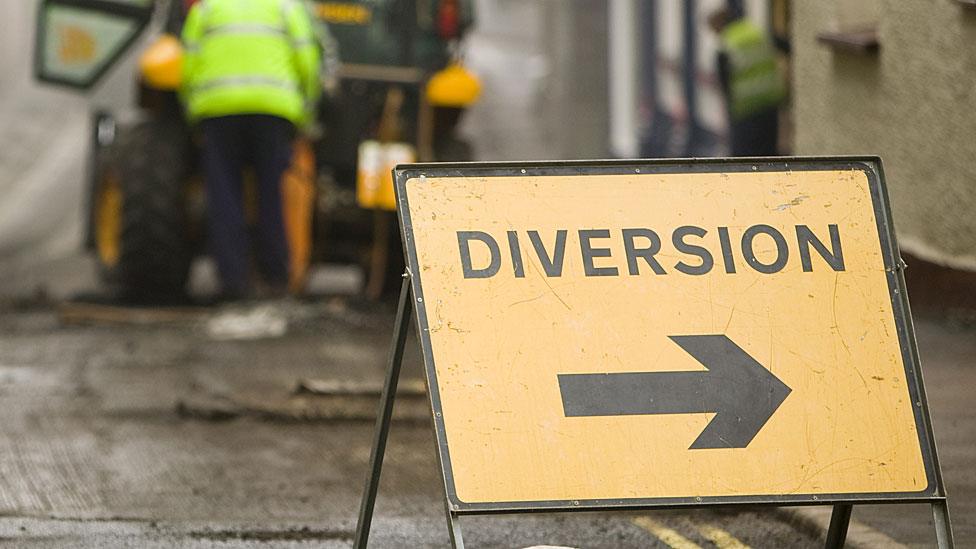Brexit: UK must not be trapped in customs union - Leadsom
- Published
I'm not a plotter, says Andrea Leadsom
There is "still the potential to improve" the draft Brexit deal, Commons leader Andrea Leadsom has said.
While she backed Prime Minister Theresa May's efforts to get the "best possible deal", she warned the UK could not be "trapped" in an EU customs union.
The BBC understands that Brexiteer Mrs Leadsom is part of a group of five ministers hoping to amend the deal.
Despite widespread criticism of the draft withdrawal agreement, Mrs May has vowed to "see it through".
The 585-page document, external sets out the terms of the UK's departure, including details such as how much money will be paid to the EU, details of the transition period and citizens' rights. It is due to be finalised at an EU summit next Sunday, 25 November.
The publication of the draft text prompted the start of a tumultuous few days for Mrs May, with two senior ministers and several other junior ministers and aides resigning.
Some Conservative Brexiteers who are unhappy with the agreement have also been submitting letters of no-confidence in Mrs May. If 48 letters are sent, then a vote will be triggered and she could face a challenge to her leadership.
Mark Francois, one of the 21 Conservative MPs who have publicly said they have sent a letter, said Mrs May's plan would leave the UK "half in and half out" of the EU and everyone knew she would never get it through Parliament.
But Conservative MP Sir Alan Duncan urged his other fellow MPs to "stop and reflect", saying a leadership challenge was not going to get the country a better deal than Mrs May's.
"All it's likely to do is create chaos, break the government, break the party and leave the country in great disarray."
If there were to be a confidence vote in Mrs May's leadership, party veteran Ken Clarke said she would "easily" win it but Nadine Dorries was doubtful, saying "when pen comes to paper" most MPs would vote against her in a secret ballot.

Analysis
By Susana Mendonça, BBC political correspondent
When they didn't jump ship over Theresa May's Brexit deal you might have thought that meant these key Brexiteers in her cabinet were ready to toe the line in a show of what's supposed to be known as "collective responsibility".
But the fact that they're still manoeuvring to change the details of the prime minister's deal (while declaring their support for her), is yet another sign of the extraordinary political times we are in.
This apparent gang of five inside the cabinet differ in their priorities. Andrea Leadsom - who's understood to be leading them - doesn't want Britain to be trapped in an endless backstop, and wants technological solutions to get around it.
Environment Secretary Michael Gove is worried about treating Northern Ireland differently from the rest of the UK. The group is at an "embryonic" stage but will they get their tweaks?
Andrea Leadsom thinks there's "still more to be done" and that they "do still have more time" before the EU Council at the end of the month. But that leaves only just over a week - and the EU doesn't look to be in the market for renegotiation at the moment.

On Friday evening, it emerged that Mrs Leadsom hopes to work with the four other cabinet ministers to change the draft withdrawal deal into something "winnable and supportable".
The four ministers believed to working with Mrs Leadsom are Michael Gove and Liam Fox - who on Friday publicly threw their support behind the PM - plus Penny Mordaunt and Chris Grayling.
Speaking to the BBC in her constituency, Mrs Leadsom said: "What I'm doing is working very hard to support the prime minister in getting the Brexit deal that 17.4 million people voted for.
"I think there's still the potential to improve on the clarification and on some of the measures within it and that's what I'm hoping to be able to help with."
Among her concerns was that "the UK cannot be trapped in a permanent customs arrangement" with the EU, she said.
She added: "I wouldn't describe myself as a plotter. I'm really just trying to make sure that we get the best possible Brexit deal."
The cabinet "gang of five" specifically want to change the part regarding the Irish backstop - which has been one of the main sticking points in talks with Brussels.
Both the UK and the EU want to avoid a hard Northern Ireland border so they agreed to put in place a "backstop" - or back-up plan - in case they cannot reach a long-term trade agreement which does this.
The backstop would mean that Northern Ireland would stay more closely aligned to some EU rules on things like food products and goods standards than the rest of the UK, which critics say is unacceptable.
The UK would not be able to leave the backstop without the EU's consent.
BBC correspondents explain 585 pages faster than you could print them... on a BBC photocopier
According to the BBC's political editor Laura Kuenssberg, the group of ministers want a change in the draft text to include the possibility of new technology or a free trade deal as alternative solutions to the Irish border issue.
The group's plans were described as a "work in progress", and a "last-ditch attempt to find something to put to the Commons".
The deal is expected to be approved at a special EU summit on 25 November, before being voted on by MPs in Parliament.
Ahead of the vote, the EU is saying it intends to stick to the existing text, according to BBC Europe editor Katya Adler. If it is voted down, the EU would be open to "tweaks" but a source close to French President Emmanuel Macron has said "nothing fundamental" could change.
Our correspondent adds that if it came to a general election or another referendum, the EU would likely be open to putting the leaving process on ice to avoid a no-deal Brexit and in the hope the UK might change its mind and stay in the EU.
The EU's chief Brexit negotiator, Michel Barnier, said the EU should not enter "some kind of bargaining process" over parts of the text, and German Chancellor Angela Merkel insisted the EU and the UK had agreed the text so negotiations should not continue.
Shadow chancellor John McDonnell has suggested that Labour could renegotiate the deal before the UK is due to leave the EU in March next year.
"I think we can do it with good will, we can change the atmosphere of negotiations into one of mutual interest and mutual benefit," he told Sky News.
Whisky for May
Meanwhile, the prime minister told the Daily Mail, external the withdrawal agreement was "not everybody's ideal deal" but said her job was to make "tough decisions" and "find a way through".
She also warned her opponents their alternative Brexit plans would not resolve the Irish backstop issue.
Commenting on the backlash to the deal, Mrs May acknowledged it had been "a pretty heavy couple of days".
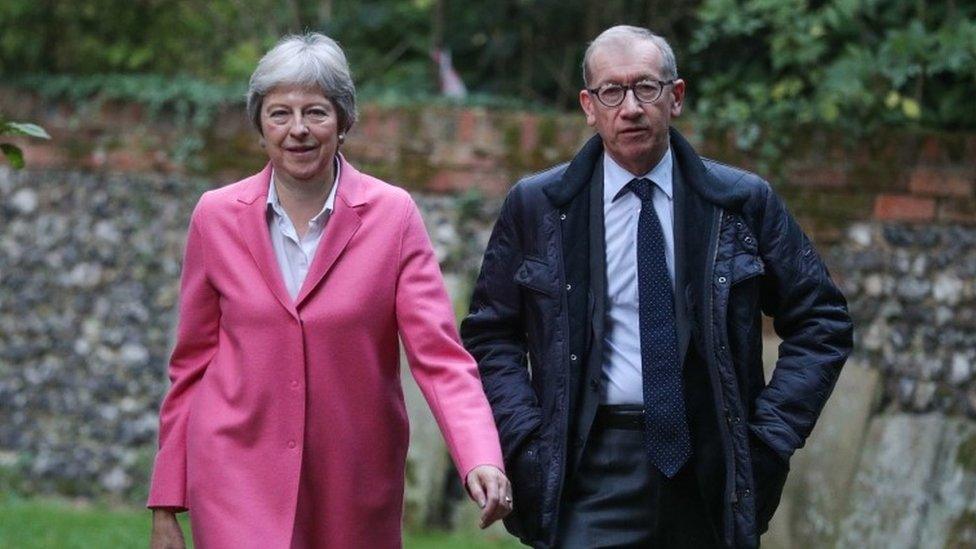
The PM says her husband is protective over her
She revealed her husband Philip, who she described as her "rock", had helped her through it - at one point pouring her a whisky and making beans on toast.
On Friday night, Mrs May called dozens of constituency chairmen to appeal to them to back her deal and her leadership - and this weekend she is expected to embark on a "social media blitz" to try to sell her plans to people not usually engaged in politics.
Mrs May's comments come after Stephen Barclay was picked as the new Brexit secretary - replacing Dominic Raab who quit on Thursday.
A No 10 spokesman indicated that Mr Barclay, who becomes the third Brexit secretary since the role was created, would focus on domestic preparations for Brexit, rather than the negotiations.
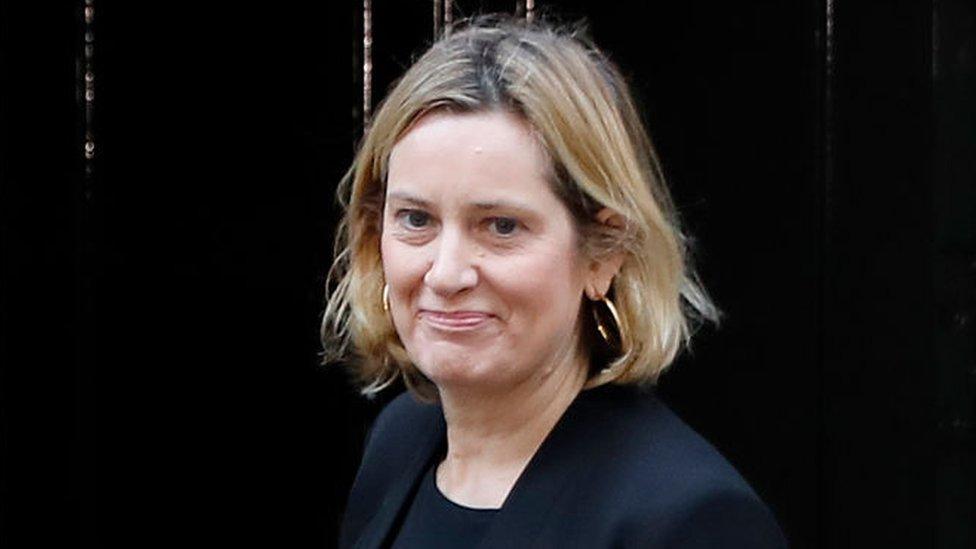
Amber Rudd returns to the frontbench - she quit as home secretary in April over the Windrush controversy
In other developments:
Amber Rudd was named as the new work and pensions secretary - replacing Esther McVey who also quit over the deal
Stephen Hammond takes over from Mr Barclay as a health minister in the mini-reshuffle
And John Penrose will join the Northern Ireland office, replacing Shailesh Vara; while Kwasi Kwarteng will go to the Department for Exiting the EU, replacing Suella Braverman
David Davis, Brexit secretary before Mr Raab, pressed Mrs May for a looser deal with the EU, saying the US would be ready to start negotiating a free trade deal straight after Brexit if she ditches her plan
On Sunday, the pro-Brexit European Research Group plans to publish a seven-page summary of the 585-page draft agreement
The Chief Constable of Northern Ireland warned that "anything that re-emphasises" the Irish border presented challenges for policing and the threat of violence was not being exaggerated
Taoiseach (Irish prime minister) Leo Varadkar told his party that his government wants to build bridges rather than new borders.
The draft withdrawal agreement for Brexit that Mrs May agreed with her cabinet on Wednesday has been signed off by negotiators from both the UK and EU.

- Published16 November 2018
- Published16 November 2018
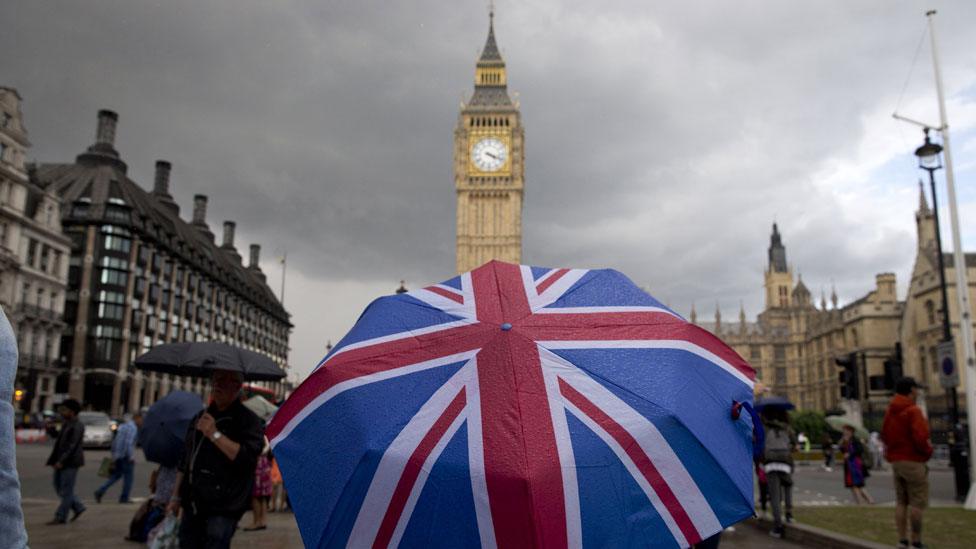
- Published25 November 2018
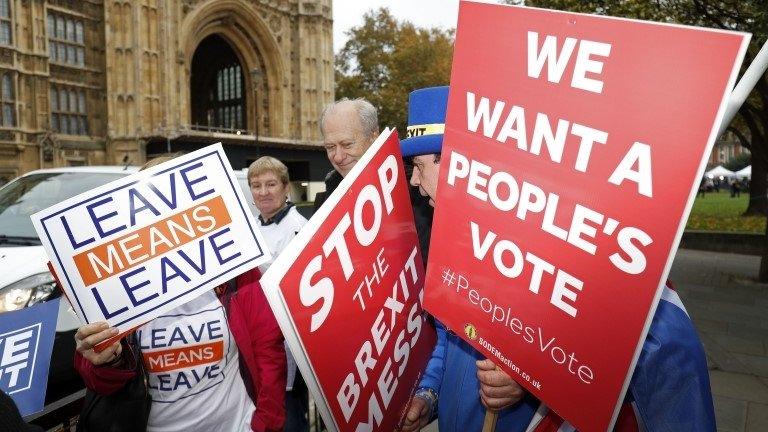
- Published16 November 2018
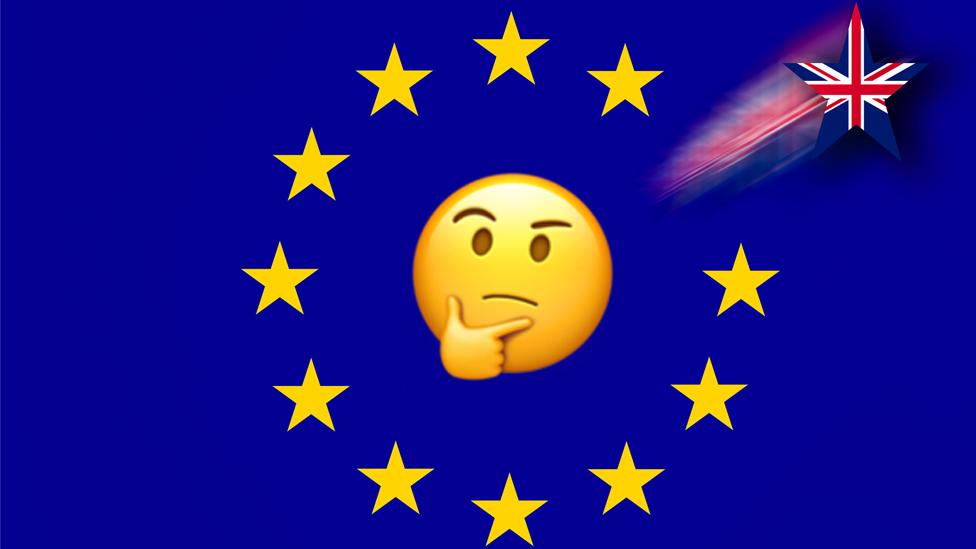
- Published16 November 2018
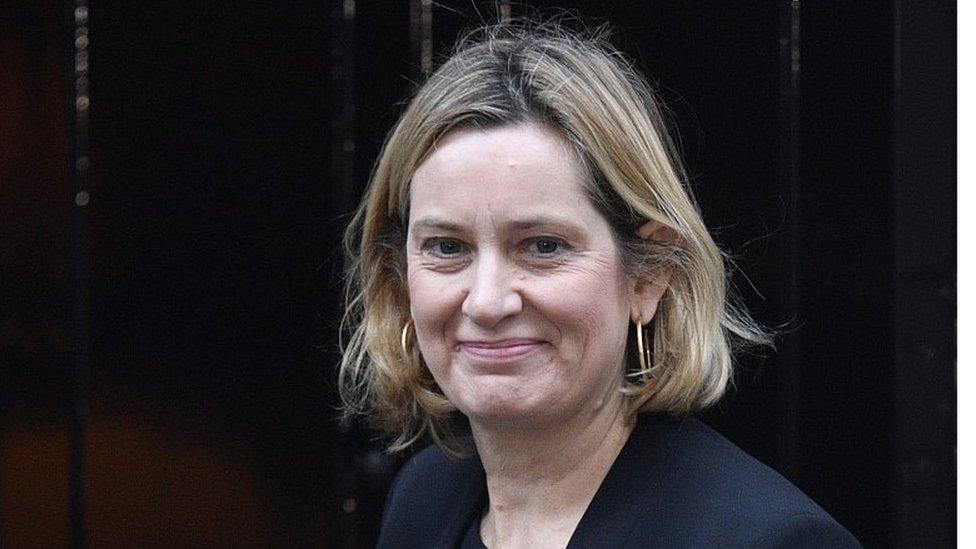
- Published16 November 2018
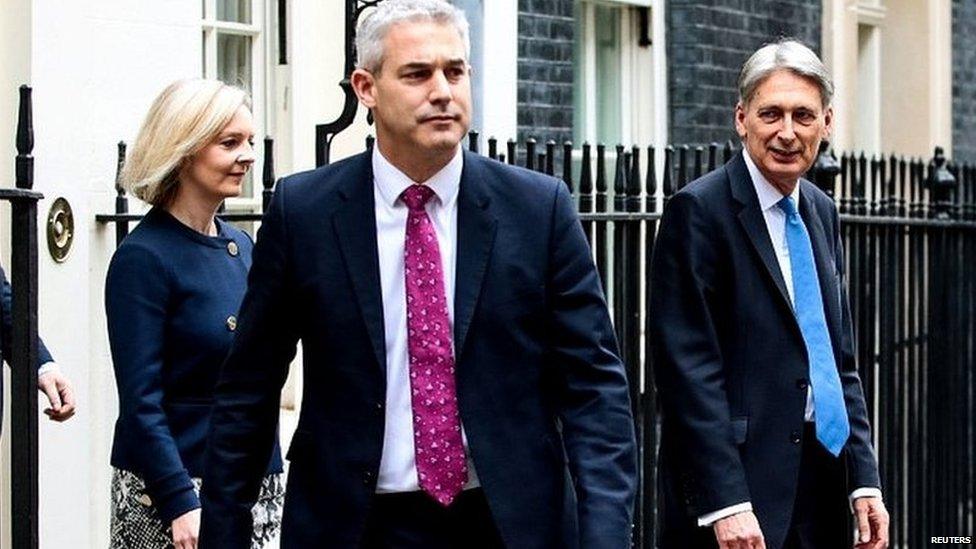
- Published12 December 2018
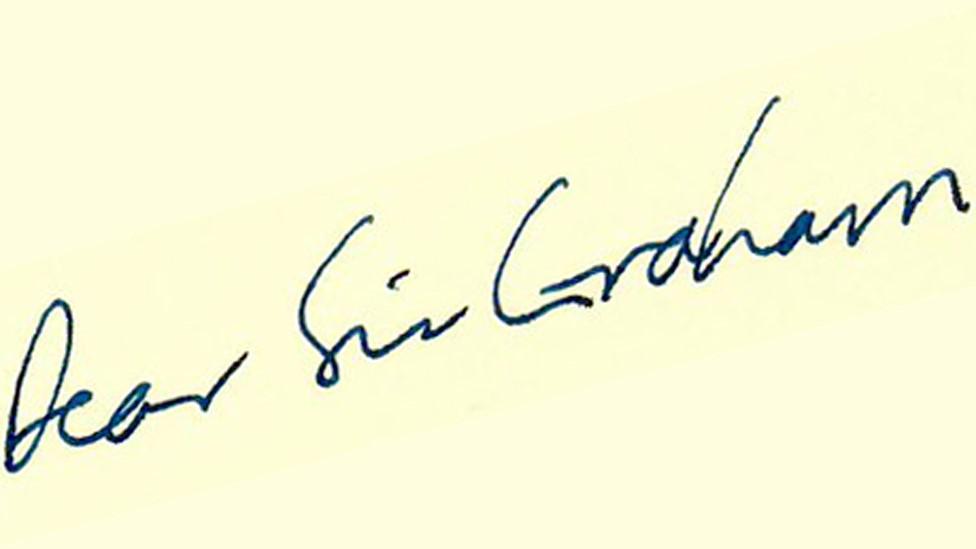
- Published26 November 2018
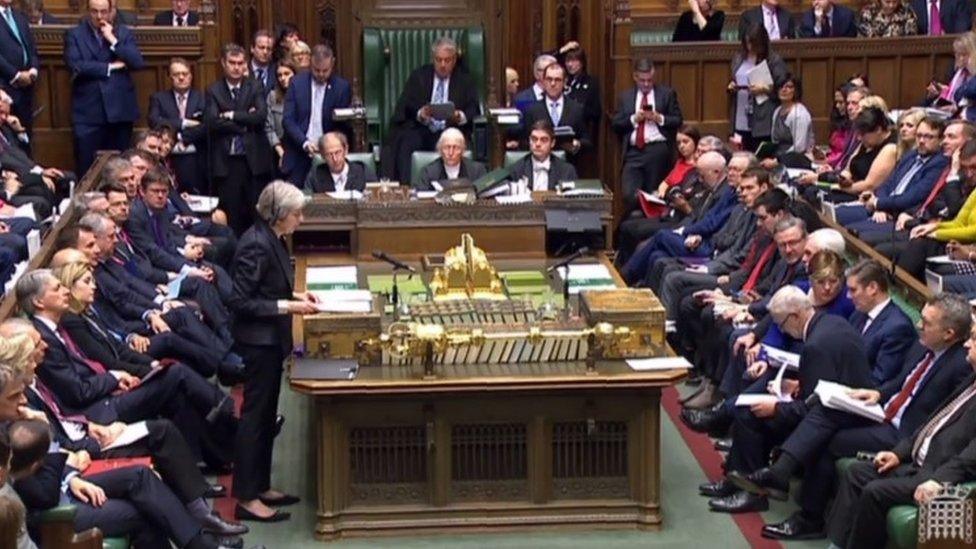
- Published18 November 2018
